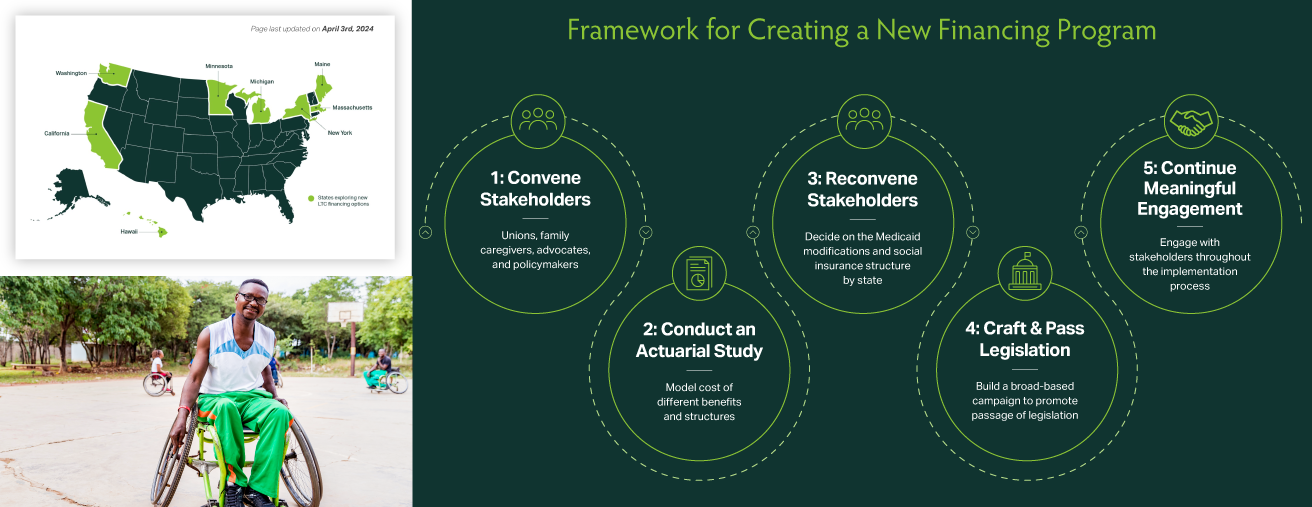Market Context
Long-term care services are intended to meet a person’s healthcare needs when they can no longer perform everyday activities independently. Our country’s existing long-term care system exacerbates inequities, particularly among people of color and women. The care workforce is rife with low pay, limited training, and demanding conditions—resulting in high turnover. Consumers struggle to pay for care, often leading them to spend their life savings to get the support they need. Unpaid family caregivers are often left to support their loved ones, thus limiting their own opportunities. These problems continue to multiply as the demand for a larger care workforce grows. Fortunately, MIT has a vision and strategy for resolving these complex challenges.
Solutions
1. Develop an engaging long-term care resource hub to build awareness.
Problem
Long-term care is an ever-changing landscape at both state and national levels. Legislators, advocates, and funders need a central resource that is trustworthy and informative.
Solution
Our team created a national long-term care resource hub that defines the current crisis and highlights planful solutions. The resource hub offers helpful and up-to-date materials, such as state-specific data and landscape reports. This tool is accessible for audiences at all levels, from those learning about long-term care to those interested in creating policy change in their communities.
2. Tell the stories of long-term care that present challenges and opportunities in relevant, relatable ways.
Problem
For the care workforce and consumers, long-term care is often a quiet crisis. The root issues are often inter-connected while the solutions can be complex and decentralized.
Solution
Our team collaborated with national leaders in the long-term care policy and advocacy space to gain a deep understanding of the core problems affecting the care workforce and consumers alike. We conducted in-depth interviews to understand how historical policy decisions have shaped today’s long-term care financing models. We also studied how societal customs lead to problems such as low pay and high turnover.
The resource hub explains the importance of creating public policy that covers consumers who don’t qualify for Medicaid and can’t afford to pay for care out-of-pocket. It highlights worker cooperatives to empower the care workforce with greater income generation and more sustainable working conditions. We added easy-to-read infographics that detail the challenges facing the long-term care system, as well as opportune pathways for equitable solutions.
Across the resource hub, we use an uplifting and action-oriented tone to offer the encouragement and resources necessary to make change possible.
3. Build out a communication plan and launch the resource hub nationally to audiences that matter.
Problem
Change-makers in the long-term care space operate at many levels across the nation. They may focus on the care workforce, consumers, or both.
Solution
Our communication strategy outlines the long-term care crisis, making it approachable for a variety of audiences. It highlights solutions and successful strategies at state and national levels. Our approach is brought to life on the resource hub with visual storytelling and an engaging digital experience.
To bring attention to the new resource hub, our team delivered a communication toolkit to partners who have large networks within key audience segments. The toolkits include guidance for using social media, newsletter content to engage audiences with the resource hub, and access to MIT-hosted long-term care webinars. Additionally, we wrote op-eds outlining the growing concerns of the long-term care workforce. These articles were then distributed to a number of national publications.






